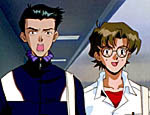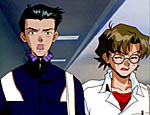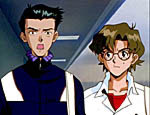FGC:Episode 04 Cut 026: Difference between revisions
Jump to navigation
Jump to search
m (Automated- Unused default cut code excision) |
No edit summary |
||
| Line 13: | Line 13: | ||
{{FGC:Script Text|type=description | {{FGC:Script Text|type=description | ||
|text=They reply at the same time, but Toji responds with decision, dash, and spirit, startling Kensuke. | |text=They reply at the same time, but Toji responds with decision, dash, and spirit, startling Kensuke.}} | ||
}} | |||
{{FGC:Script Text|type=dialogue|speaker=Kensuke (concurrently) | {{FGC:Script Text|type=dialogue|speaker=Kensuke (concurrently) | ||
|text= | |text=Yes.}} | ||
{{FGC:Script Text|type=dialogue|speaker=Toji (concurrently) | {{FGC:Script Text|type=dialogue|speaker=Toji (concurrently) | ||
|text= | |text=Yes!! I'm Suzuhara.}} | ||
|comments= | |comments= | ||
Revision as of 13:53, 2 March 2010
| Screenshots | Cut # | Description/Dialogue | Commentary | ||
|---|---|---|---|---|---|
| 026 |
|
|



